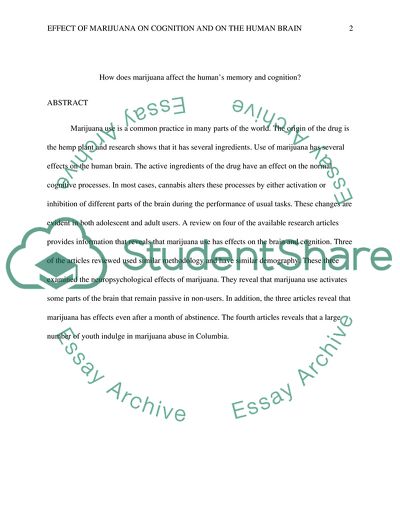Cite this document
(How Marijuana Affects the Human Brain and Cognition Literature review Example | Topics and Well Written Essays - 1750 words, n.d.)
How Marijuana Affects the Human Brain and Cognition Literature review Example | Topics and Well Written Essays - 1750 words. https://studentshare.org/health-sciences-medicine/1782044-how-does-marijuana-effect-the-humans-memory-and-cognition
How Marijuana Affects the Human Brain and Cognition Literature review Example | Topics and Well Written Essays - 1750 words. https://studentshare.org/health-sciences-medicine/1782044-how-does-marijuana-effect-the-humans-memory-and-cognition
(How Marijuana Affects the Human Brain and Cognition Literature Review Example | Topics and Well Written Essays - 1750 Words)
How Marijuana Affects the Human Brain and Cognition Literature Review Example | Topics and Well Written Essays - 1750 Words. https://studentshare.org/health-sciences-medicine/1782044-how-does-marijuana-effect-the-humans-memory-and-cognition.
How Marijuana Affects the Human Brain and Cognition Literature Review Example | Topics and Well Written Essays - 1750 Words. https://studentshare.org/health-sciences-medicine/1782044-how-does-marijuana-effect-the-humans-memory-and-cognition.
“How Marijuana Affects the Human Brain and Cognition Literature Review Example | Topics and Well Written Essays - 1750 Words”. https://studentshare.org/health-sciences-medicine/1782044-how-does-marijuana-effect-the-humans-memory-and-cognition.


